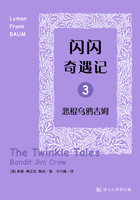HOW THE PEOPLE OF THE CITIES ASSERTED
THEIR RIGHT TO BE HEARD IN THE ROYAL COUNCILS OF THEIR COUNTRY As long as people were "nomads," wandering tribes of shepherds, all men had been equal and had been responsible for the welfare and safety of the entire community.
But after they had settled down and some had become rich and others had grown poor, the government was apt to fall into the hands of those who were not obliged to work for their living and who could devote themselves to politics.
I have told you how this had happened in Egypt and in Mesopotamia and in Greece and in Rome. It occurred among the Germanic population of western Europe as soon as order had been restored. The western European world was ruled in the first place by an emperor who was elected by the seven or eight most important kings of the vast Roman Empire of the German nation and who enjoyed a great deal of imaginary and very little actual power. It was ruled by a number of kings who sat upon shaky thrones. The every-day government was in the hands of thousands of feudal princelets. Their subjects were peasants or serfs. There were few cities. There was hardly any middle class. But during the thirteenth century (after an absence of almost a thousand years) the middle class--the merchant class--once more appeared upon the his- torical stage and its rise in power, as we saw in the last chapter, had meant a decrease in the influence of the castle folk.
Thus far, the king, in ruling his domains, had only paid attention to the wishes of his noblemen and his bishops. But the new world of trade and commerce which grew out of the Crusades forced him to recognise the middle class or suffer from an ever-increasing emptiness of his exchequer. Their majesties (if they had followed their hidden wishes) would have as lief consulted their cows and their pigs as the good burghers of their cities. But they could not help themselves.
They swallowed the bitter pill because it was gilded, but not without a struggle.
In England, during the absence of Richard the Lion Hearted (who had gone to the Holy Land, but who was spending the greater part of his crusading voyage in an Austrian jail) the government of the country had been placed in the hands of John, a brother of Richard, who was his inferior in the art of war, but his equal as a bad administrator. John had begun his career as a regent by losing Normandy and the greater part of the French possessions. Next, he had managed to get into a quarrel with Pope Innocent III, the famous enemy of the Hohenstaufens. The Pope had excommunicated John (as Gregory VII had excommunicated the Emperor Henry IV two centuries before). In the year 1213 John had been obliged to make an ignominious peace just as Henry IV had been obliged to do in the year 1077.
Undismayed by his lack of success, John continued to abuse his royal power until his disgruntled vassals made a prisoner of their anointed ruler and forced him to promise that he would be good and would never again interfere with the ancient rights of his subjects. All this happened on a little island in the Thames, near the village of Runnymede, on the 15th of June of the year 1215. The document to which John signed his name was called the Big Charter--the Magna Carta. It contained very little that was new. It re-stated in short and direct sentences the ancient duties of the king and enumerated the privileges of his vassals. It paid little attention to the rights (if any) of the vast majority of the people, the peasants, but it offered certain securities to the rising class of the merchants. It was a charter of great importance because it defined the powers of the king with more precision than had ever been done before. But it was still a purely mediaeval document. It did not refer to common human beings, unless they happened to be the property of the vassal, which must be safe-guarded against royal tyranny just as the Baronial woods and cows were protected against an excess of zeal on the part of the royal foresters.















